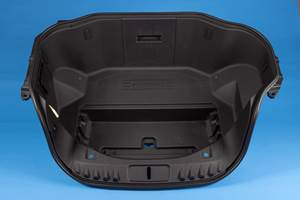Single-Wall Carbon Nanotubes Show No Ecotoxicity
Findings on OCSiAl’s Tuball nanotubes are based on OECD chemical testing guideline 201.
The Tuball single-wall carbon nanotubes produced by Russia’s OCSiAL (U.S. office in Columbus, Ohio) were recently tested for their ecotoxicity potential in accordance with the relevant OECD chemical testing guideline 201, and were shown to have no toxic effects on algae. This in contrast to a set of recent results with muti-wall carbon nanotubes. Among the possible reasons, says OCSiAL, is their unique physical nature, particularly their high flexibility.
The range of applications of carbon nanotubes has continued to increase rapidly and now extends far beyond only high-technology products to include consumer goods. As a result, concerns have been raised about the potential adverse environmental effects of carbon nanotubes. A single-wall carbon nanotube is a one-atom-thick sheet of graphene that is rolled into a tube. This type of nanotube has been shown to possess a number of important properties, including high flexibility that is far superior to that offered by multi-wall carbon nanotubes or carbon fibers.
Independent European research laboratory Envigo, which conducted the studies, examined the Tuball single-wall carbon nanotubes by treating algae—recognized as a very sensitive species—with a saturated solution of the nanotubes for 72 hours, as per the OECD guideline. The measured algal biomass densities and thus the growth rates demonstrated that there were no toxic effects. Said researcher Detlef Schuler in his soon-to-be published article, “There is no indication that dissolved Tuball single-wall carbon nanotubes have any intrinsic ecotoxic properties at all when tested in solution as stipulated by the testing guidelines. Furthermore, unlike multi-wall carbon nanotubes and carbon fibers, single-wall carbon nanotubes are highly flexible and may thus generally have a lower potential to harm the cell walls of algae.”
Fundamentally, distinctive features of single-wall carbon nanotubes, compared with the multi-wall nanotubes and carbon fibers, have historically been underestimated by researchers. A number of recent test results have illuminated various effects of these nanomaterials interacting with the environment. One example is a study led by the Russian Far Eastern Federal University that demonstrated both acute and chronic toxic effects of multi-wall carbon nanotubes on marine algae. The researchers concluded that mechanical damage to the cell walls was the reason for this effect, and that this was due to the rigid nature of this type of nanotube.
Further specific and comprehensive studies on single-wall carbon nanotubes’ potential toxic properties will be conducted in the very near future, including inhalation toxicity studies to be carried out according to the relevant OECD test guidelines. Tests on migration of these nanotubes from a material’s matrix, and case studies in the workplace to measure the exposure to inhaled nanoparticles and the environmental risk for workers are already in the public domain, according to OCSiAL.
It should be noted that the single-wall carbon nanotubes continue to be more expensive than their multi-wall counterparts—although all have come down in price as commercial applications grow. According to OCSiAL, the multi-wall nanotubes are about nine times higher in cost. However, depending on the application, the multi-wall carbon nanotubes require dosage levels between 20 and 100 times higher than their single-wall counterparts—generally making the latter more cost-effective.
Earlier this year, we reported on how OCSiAl’s Tuball nanotubes were used in the first anti-static blown PE films.
Related Content
Industrial Resin Recycling Diversifies by Looking Beyond Automotive
Recycler equips for new 大象传媒 in medical, housewares and carpeting.
Read MoreAutomotive Awards Highlight ‘Firsts,’ Emerging Technologies
Annual SPE event recognizes sustainability as a major theme.
Read MoreNeste, Borealis and Covestro Plan to Make Polycarbonate From Recycled Tires
Companies announced agreement that will use advanced recycling to convert old tires into new PC-suitable for automotive applications.
Read MoreINEOS Styrolution to Close ABS Production in Addyston, Ohio
Company will commence a safe and responsible decommissioning process in the second quarter of 2025.
Read MoreRead Next
People 4.0 – How to Get Buy-In from Your Staff for Industry 4.0 Systems
Implementing a production monitoring system as the foundation of a ‘smart factory’ is about integrating people with new technology as much as it is about integrating machines and computers. Here are tips from a company that has gone through the process.
Read MoreMaking the Circular Economy a Reality
Driven by brand owner demands and new worldwide legislation, the entire supply chain is working toward the shift to circularity, with some evidence the circular economy has already begun.
Read More












